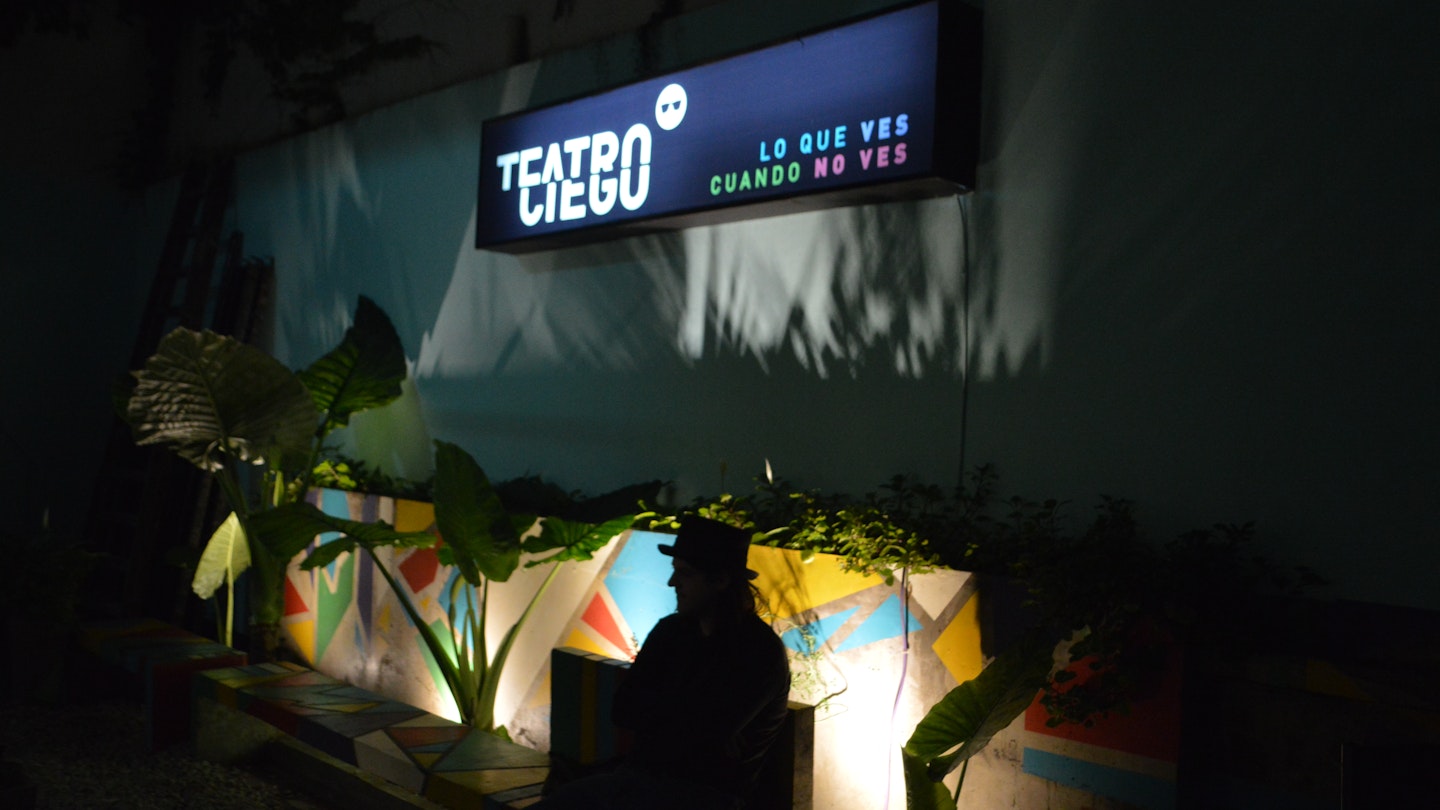Teatro Ciego: A Unique Blind Theater Experience in Buenos Aires
On the outside, there’s not much to distinguish Teatro Ciego from the other independent theaters in Buenos Aires. Moments before the show, the foyer is filled with guests intermingling and sipping on Malbec. However, Teatro Ciego (Blind Theater) is something completely unique – every play is performed in complete darkness.
You don’t just watch the show; you experience it through every sense except sight. This unusual method is proving popular: the theater has been around since 2008 and now features regular performances of 10 different shows.
The Rules at Teatro Ciego
When it’s showtime, staff come into the foyer and explain the rules. Phones must be switched off, not just put on silent, and electric watches should be taken off: even the dim screen glow can spoil the darkness inside the theater. It’s also recommended to remove glasses, in case they get snagged on anything.
At first glance, the people guiding you inside might be mistaken for stewards. They’re all wearing plain black clothes with the Teatro Ciego logo and little makeup. In reality, they’re the actors starring in the show. With no visual spoilers needed, costumes or stage makeup are unnecessary when the performance is in utter darkness.
The actors usher the audience into the theater in small groups. Each guest puts their hands on the shoulders of the person in front as they pass through a thick, black curtain into the pitch dark.
Enjoying Dark Magic
In the dark magic show Iluzo, a grand and self-consciously hyperbolic conjuror takes to the stage, performing feats of mind-reading and making objects appear in seemingly impossible places. Perfectly timed crashes, bangs, wallops, and even smells stimulate vivid mental images of the theater around you.
Unlike many conventional magic shows, where tricks are performed on glamorous assistants and unwitting audience members, everyone experiences the tricks simultaneously. It’s disorienting, deeply psychological and delightfully surprising. The performance itself lasts a little under an hour, and it’s crucial to arrive on time: given the immersive nature of the performance, latecomers are not allowed in.
Origins of Dark Theater
The technique was pioneered in the 90s by drama teacher Ricardo Sued in the Argentine city of Córdoba, who started meditating in the dark, according to Teatro Ciego’s general producer Ezequiel Viscovig.
Sued began adapting theater techniques to the darkness and ultimately developed the work Caramelo de Limón (lemon sweet), to be performed in the dark. Viscovig explains that although other theaters may work with sensory deprivation techniques, Teatro Ciego is the only one where all plays are performed entirely in darkness.
Catering to Non-Spanish Speakers
Unsurprisingly for a theater where you cannot see, language is an important aspect of the shows. If your Spanish is anything less than perfect, communicate this to the actors at the beginning. Not only is the performance delivered in a rapid stream of Argentine Spanish, but you actually need to think in Spanish for some of the tricks to be effective.
However, Iluzo director and performer Jonás Volman speaks fluent English and employs clowning techniques to assist speakers of other languages in enjoying the show as well.
“Generally, the effects work,” he says, smiling.
A Play for Everyone
The broad variety of shows means there is something to suit all tastes. Mi Amiga la Oscuridad (My Friend the Darkness), which runs on weekend afternoons, is a show specifically designed for children. Amurri, who also acts in this show, explains that children are introduced to the darkness gradually, so they do not get scared.
At Sonido 360, classic albums by bands like Queen and Pink Floyd are played through a state-of-the-art surround sound system, allowing audiences to enjoy them without any distractions. There are even speakers in the ceiling.
For a full-scale sensory experience, the show A Ciegas Gourmet includes a seven-course taster menu during the performance. The menu remains a secret to enhance the experience, but they cater to vegetarians, coeliacs, and other dietary requirements with 48-hour notice.
Teatro Ciego’s Impact
Teatro Ciego’s motto, Lo que ves cuando no ves (What you see when you can’t see), resonates most profoundly when the lights go on at the end. You realize that the theater you’ve been imagining, the stage with its heavy velvet curtain and the orchestra pit framed by ornate wooden carvings, only exists in your mind.
The magician, who you’d mentally dressed up in a grand top hat and tails and who definitely had a mustache in your imagination, is likely one of the friendly guides showing you the way out, although you’d be hard-pressed to identify who.
In a way, you’ve all attended the same show as those around you, but there are some aspects of the experience that you created uniquely, known only to you.




